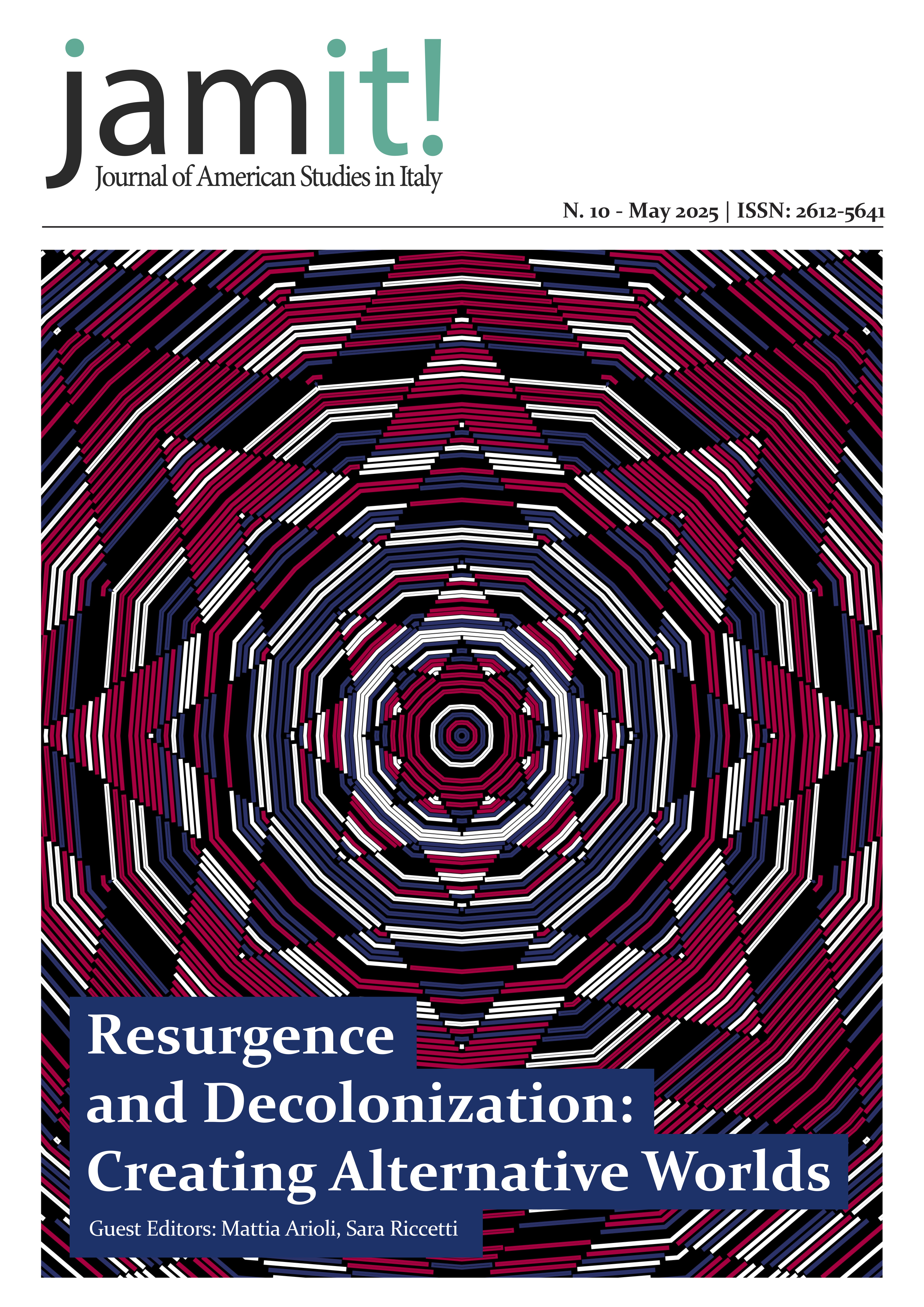Across Continent and Generations
Fading Family History in Yaa Gyasi's Homegoing
DOI:
https://doi.org/10.13135/2612-5641/9987Keywords:
Homegoing, Family Saga, Slavery, Yaa Gyasi, Family heritage, African diasporaAbstract
This essay explores the transmission and disruption of family history among enslaved individuals and their descendants in Yaa Gyasi’s multigenerational novel Homegoing (2016). Focusing on Esi’s lineage, whose members are transported from their homeland to the United States through the transatlantic slave trade, this study examines how slavery and its legacies not only erase personal and familial history but also complicate the descendants’ attempts to reclaim a sense of identity and belonging, leaving many generations disconnected from their ancestral roots. This analysis first investigates the role of communicative memory in preserving family history for enslaved individuals and their descendants, despite the forced separations that impede the transmission of heritage from one generation to the next, thereby severing a crucial link to the family’s roots. The second part of the essay addresses how the devastating impact of slavery and its legacies further disrupt the transmission of family history, leaving many characters adrift. The analysis then considers how historical knowledge and symbolic acts, such as journeys to historically significant sites, serve as alternative means for reconnecting with lost heritage, offering some relief from the genealogical alienation imposed by slavery, even when family history remains irretrievable.
Downloads
Published
Issue
Section
License
Copyright (c) 2025 Nicole Bernardi

This work is licensed under a Creative Commons Attribution-NonCommercial-NoDerivatives 4.0 International License.
Authors who publish with this journal agree to the following terms:
- Authors retain the copyright and full publishing rights for their submissions to the journal.
- Authors grant the journal right of first publication with the work simultaneously licensed under a Creative Commons Attribution-NonCommercial-NoDerivatives 4.0 International License that allows others to share unedited work for non-commercial purposes with an acknowledgement of the work's authorship and initial publication in this journal.
- Authors are able to enter into separate, additional contractual arrangements for the non-exclusive distribution of the journal's published version of the work (e.g., post it to an institutional repository or publish it in a book), with an acknowledgement of its initial publication in this journal.
- Authors are permitted and encouraged to post their work online (e.g., in institutional repositories or on their website) prior to and during the submission process, as it can lead to productive exchanges, as well as earlier and greater citation of published work (See The Effect of Open Access).




